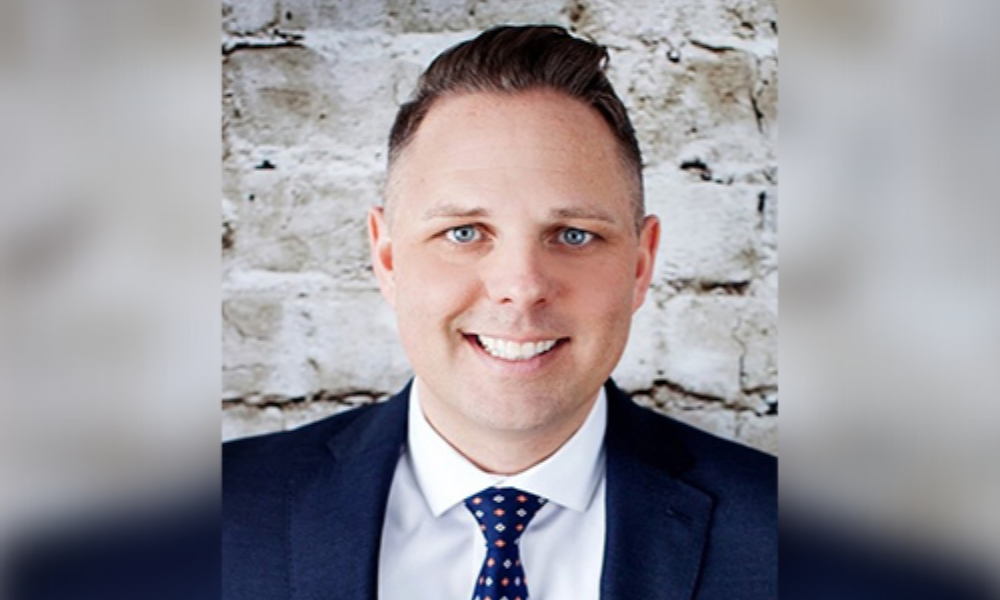A sizeable number of Canadians fear having to sell their home, according to a new survey

As Canada’s cost-of-living crisis continues, a new Manulife Bank survey has suggested that nearly one in four homeowners believe they would have to sell their home if interest rates keep rising.
Up to 18% of homeowners believe they can no longer afford the house they own, the company’s Debt Survey revealed, while over one in five Canadians say rising interest rates will have a significant negative impact on their overall financial situation – including where mortgages and other debt is concerned.
Manulife’s vice president of sales Lysa Fitzgerald said Canadians could gain “confidence and control” of their financial situation through a better understanding of the impact of interest rates and inflation on personal finances, noting that could be done either independently or through the expertise of a certified financial advisor.
Speaking with Canadian Mortgage Professional, Nick L’Ecuyer (pictured top), principal broker and founder at Barrie-based Mortgage Wellness, said he was emphasizing to his clients the importance of having a proactive approach to the current rising-rate environment, putting a plan in place to cope with further rate hikes on the horizon.
“The last thing that anybody wants to see is a family having to sell their home,” he said. “So get into a cash flow strategy that works for you and your family. Let’s just get ahead of it.”
For those borrowers whose interest rate currently sits in the area between around 1% and 2.5%, it’s imperative to connect with a broker who can forecast what payments should be at the end of their current period, he said.
Read next: Canada home prices – why they're falling
That will allow brokers to recommend a course of action that can ultimately help those mortgage holders offset some of the impact of rate hikes down the line – for instance, increasing payments every six months or year for the next number of years.
“That way, the burden of the increase isn’t too significant to the family, and all the while for two, three or four years, you’re paying down additional principal,” he said.
“That’s doing two things: Number one is getting you ready for an inevitably higher payment. Number two, it’s significantly reducing the amount of mortgage debt that you owe in your home for the next [several] years, so you’re better prepared for that renewal. You owe less, and now there are more options.”
For those borrowers whose mortgages are coming up for renewal within the next 18 months, and are worried about the prospect of the impact on their finances, getting a cash flow strategy in place with the help of an expert is also crucial, L’Ecuyer – named one of Canada’s top 75 brokers for 2022 by CMP – said.
That could involve refinancing with any debt outside the mortgage being consolidated – from credit card to unsecured debt or car payments. While that means paying off more debt over a longer period, it could be an essential component of a strategy that insures against having to sell, according to L’Ecuyer.
“What we do is a full consolidation, a full refinance of all the debts,” he explained, “[and] put it all into one and design a cash flow strategy that works perfectly for the family so that they don’t ever have to consider selling their home.”
Read next: Brokerage president on market uncertainty
Four in five Canadians now believe the country is in the midst of an affordability crisis, Manulife’s survey revealed, with about one in five mortgage holders expecting rising rates to significantly impact those payments.
Fitzgerald said the essential role played by financial professionals and experts should come into sharp focus as Canadians’ concern about the economic outlook continues to grow.
“As we move forward, it’s imperative Canadians use resources available to them to talk to certified professionals and find ways to try and become more financially flexible and ensure they’re taking a detailed look at their personal financial plans before making major financial decisions.”
L’Ecuyer stressed again the importance of getting started as soon as possible on putting that plan in place. “Get ahead of it quickly so that you’re not behind the ball when interest rates increase even more or unable to pay your debts when home values dip a little bit,” he said. “Get started on it today.
“If things are tight, get rid of [unnecessary] payments, consolidate the debts, get one payment, stretch out the amortization, hunker down and let’s design something that works for you and your family.”



